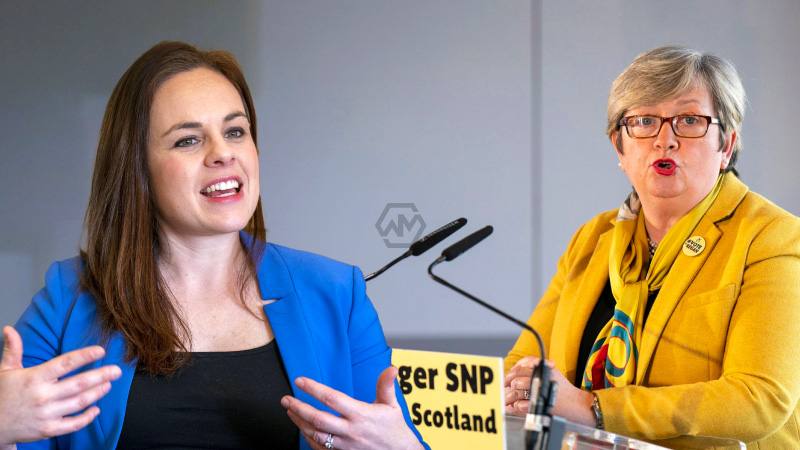- Kate Forbes addresses widespread misogyny in politics, including within the SNP.
- Former MPs Joanna Cherry and Elena Whitham report abuse from within the party.
- Forbes emphasizes the need for senior women in government to act as role models.
Kate Forbes, Scotland’s Deputy First Minister, has acknowledged the prevalence of misogyny in politics, emphasizing that it is not unique to the SNP. She insists that this issue must be addressed within the party following criticisms from former MPs Joanna Cherry.
In light of the SNP’s poor performance in the recent election, where their number of MPs dropped from 48 to nine, Forbes defended First Minister John Swinney, who assumed leadership shortly before the vote.
Kate Forbes Urges Action Against Political Misogyny Within SNP
Kate Forbes has highlighted the issue of misogyny within politics, asserting that it is not exclusive to the SNP but must be eradicated from the party. Her comments come after former MPs Joanna Cherry and Elena Whitham publicly discussed the abuse they encountered. Forbes pointed out that the toxic and polarizing political environment in western democracies, amplified by social media, is contributing to this pervasive issue.
Joanna Cherry, who lost her seat in the recent election, criticized the SNP for ignoring complaints of misogyny. She described the party’s internal culture as having “stinking misogyny” and called for senior members to take action. Elena Whitham, who stepped down as drugs minister last year due to post-traumatic stress, also shared her experience with misogynistic abuse within the party.
Forbes acknowledged that tackling misogyny is crucial to ensuring more women feel encouraged to pursue political careers. She emphasized the need for women in senior government roles to serve as role models and to actively work towards creating a more inclusive and respectful political environment. This, she believes, will help combat the broader issue of prejudice against women in politics.
Following the SNP’s significant losses in the recent election, Forbes also defended the party leadership, particularly First Minister John Swinney, who had only taken over shortly before the vote. She underscored the importance of aligning the SNP’s policies with public priorities, focusing on tackling poverty, fostering economic growth, and strengthening public services. Forbes stressed that the party must heed the electorate’s message to prepare effectively for the upcoming Scottish elections in 2026.
Kate Forbes’ call for addressing misogyny within the SNP highlights a critical issue that resonates across the political spectrum. By advocating for change and supporting women in leadership, she aims to create a more equitable and respectful political landscape.
“This is an issue right across perhaps western democracies we are struggling with enormously, with social media, with the polarizing and intoxicating nature of our politics and I think if you recall it was one of the reasons that Nicola Sturgeon said that she was standing down.” – Kate Forbes



